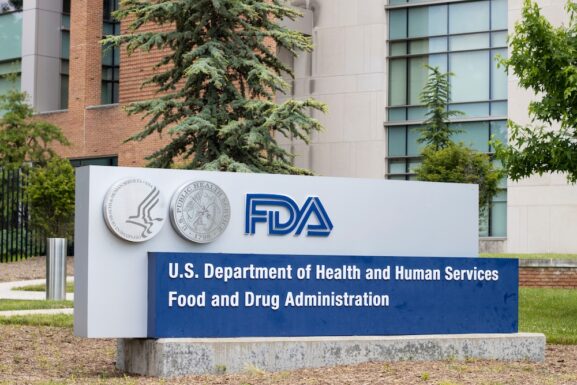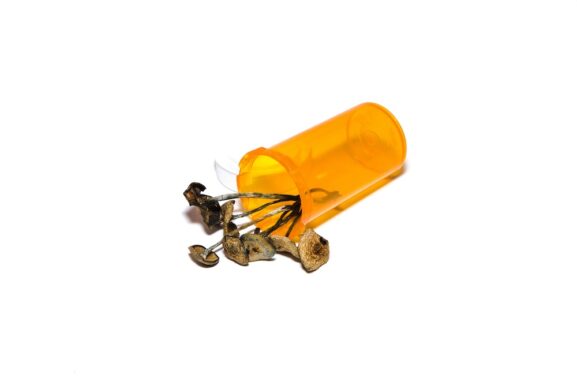This Texas Republican Is Pushing for Psychedelic Treatments
In recent years, the conversation around mental health treatments has changed a lot. One of the most exciting developments is the use of psychedelic drugs to treat conditions like PTSD and brain injuries. Leading this charge is U.S. Rep. Morgan Luttrell, a retired Navy SEAL from Magnolia, Texas. Luttrell’s advocacy is not just political; it’s deeply personal. After undergoing psychedelic treatment himself, he credits the experience with saving his marriage and improving his mental health.
New: Interested in Being Part of a Psychedelics-Focused Clinical Trial? Sign Up Here
Morgan Luttrell: A Personal Journey
Morgan Luttrell’s journey with psychedelics began out of desperation. After years of struggling with PTSD and brain injuries from his military service, he found himself at a crossroads. Traditional treatments had failed him, and his mental health was deteriorating. In a last-ditch effort, Luttrell traveled to Mexico to undergo psychedelic treatment. The results were nothing short of miraculous. Not only did he experience profound mental clarity, but he also felt a renewed sense of purpose and connection with his loved ones. This personal transformation has fueled his advocacy for making these treatments available to other veterans.
Looking for treatment? Find ketamine clinics closest to you as well as other psychedelic therapies in your area.
Psychedelics and PTSD
PTSD is a debilitating condition that affects millions of people worldwide, particularly veterans. Traditional treatments, such as cognitive-behavioral therapy and medication, often fall short. Psychedelics offer a new avenue for treatment by helping patients process and integrate their traumatic experiences in a safe and controlled environment. Studies have shown that even a single session of psychedelic-assisted therapy can lead to significant improvements in PTSD symptoms.
Psychedelics and Traumatic Brain Injuries
Traumatic brain injuries (TBIs) are another area where psychedelics show promise. TBIs can lead to a range of cognitive and emotional issues, including memory loss, depression, and anxiety. Psychedelics can help promote neuroplasticity, the brain’s ability to reorganize and form new neural connections. This can aid in the recovery process, helping patients regain lost cognitive functions and improve their overall quality of life.
Interested in MDMA Treatment? The FDA is close to approving MDMA Therapy. Get on the waiting list now!
The Legal Landscape
The legal status of psychedelics varies widely around the world. In the United States, most psychedelics are classified as Schedule I substances, meaning they are considered to have a high potential for abuse and no accepted medical use. However, this is beginning to change. Several states and cities have decriminalized psychedelics, and there is growing momentum for federal reform. Morgan Luttrell is at the forefront of this movement, advocating for changes in legislation to allow for the medical use of psychedelics.
Have questions about psychedelics and psychedelic-assisted therapy? Try out the beta version of HealingChat, HealingMaps AI chatbot that takes all our vetted content, clinics and retreats to answer all your questions in a safe environment. Try the beta version now!
Public Perception and Stigma
Despite the growing body of evidence supporting the use of psychedelics in medical treatments, public perception remains mixed. Many people still associate psychedelics with the counterculture movements of the 1960s and view them as dangerous and illicit substances. Changing this perception is crucial for the widespread acceptance and adoption of psychedelic treatments. Advocacy and education are key components in this effort, helping to dispel myths and highlight the potential benefits of these substances.
Veteran Suicides: A National Crisis
The issue of veteran suicides is a national crisis. According to the Department of Veterans Affairs, an average of 17 veterans die by suicide every day. Many of these suicides are linked to PTSD and TBIs. Traditional treatments have proven inadequate in addressing this crisis, highlighting the urgent need for new and innovative approaches. Psychedelic treatments offer a glimmer of hope, providing a potential lifeline for veterans struggling with these debilitating conditions.
The Role of the FDA
The Food and Drug Administration (FDA) plays a crucial role in the approval and regulation of new medical treatments. In recent years, the FDA has shown a willingness to explore the potential of psychedelics, granting “breakthrough therapy” status to several psychedelic-based treatments. This designation is reserved for treatments that show significant promise in early clinical trials and can expedite the approval process. However, there is still a long road ahead before these treatments become widely available.
Comparing Psychedelics to Traditional Treatments
Traditional treatments for mental health conditions often involve a combination of medication and therapy. While these treatments can be effective, they also come with limitations. Medications can have side effects, and therapy can be time-consuming and expensive. Psychedelics offer a new approach, providing rapid and lasting relief for many patients. Comparing the efficacy and safety of psychedelics to traditional treatments is an essential step in understanding their potential role in mental health care.
The Future of Psychedelic Treatments
The future of psychedelic treatments is bright. As research continues to uncover the potential benefits of these substances, there is growing optimism that they will become a standard part of mental health care. Advances in technology and a better understanding of the brain’s chemistry will further enhance the effectiveness of psychedelic treatments. The next decade promises to be an exciting time for the field of psychedelic medicine.
Political Support and Opposition
The political landscape surrounding psychedelic treatments is complex. While there is growing bipartisan support for these treatments, there are also significant challenges and opposition. Understanding the political dynamics and building coalitions of support are crucial for advancing the cause of psychedelic medicine. Morgan Luttrell’s advocacy is a testament to the power of political leadership in driving change.
The Role of Advocacy Groups
Advocacy groups play a vital role in promoting the use of psychedelics in medical treatments. These groups work to raise awareness, educate the public, and advocate for policy changes. Their efforts are instrumental in changing public perception and building support for psychedelic treatments. Collaborating with advocacy groups is essential for advancing the field of psychedelic medicine.



